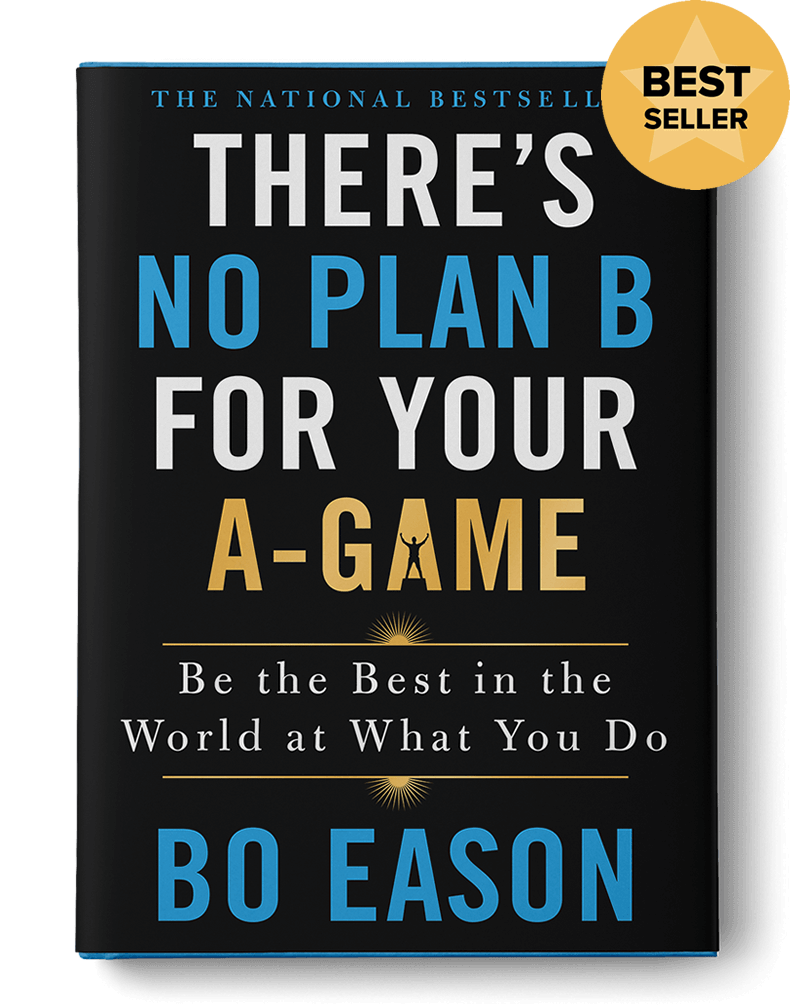Today, we’re going to talk about books. People are always asking, “Bo, what books do you recommend?” And the truth of the matter is I say, “Not a lot.” Most books are bad. Most books that are written aren’t worth reading. It’s a waste of your time. So I’m very meticulous, I’m very particular on how I choose them. They have to be recommended by somebody I trust very much or it’s being recommended by five people within a month and they’re saying, “Bo, this will really stir what’s inside of you.” And those are the books that I read.
Also, you hear people say, “I’m going to read 100 books this year,” or “I read a book a week, that’s my goal this year.” I go the opposite direction of that kind of thinking. I would rather master a book than read a book. I would rather internalize a book—make it part of me—than read a bunch of books.
The people that work with me know I give them five or six books throughout the year. I just don’t give to them books to keep them busy reading. I give them books—one that I’ve read for 20 years, one for 15 years, one for seven or eight years and a couple of them are fairly new to me in the last couple of years. These are books that I read daily, that I open up daily—some of them for 15 or 20 years—and read a page. So the words of this book, the intent that the writer spent putting his life’s work down on a page, I want to make that part of my life. I don’t want to just read it and have the information in my brain and forget it the next day and move on to the next book.
Slow down. Internalize the great books.
Like Henry V. Shakespeare wrote this book 500 years ago. I have been reading this book for over 20 years. It’s always a part of me. I am always using it. It’s become who I am because Henry V stirred something inside of me. It made me come alive because it was a young king trying to be a leader and he had to get his men—500 Englishmen who were sick, infirmed, tired, hungry, and cold and had all the elements against them. He had to encourage these guys, he had to get these 500 men to go fight 10,000 Frenchmen who were rested and on horseback and had superior weaponry and they were better warriors supposedly—10,000 against 500 guys who weren’t up for the fight. He had, in one speech, to get them, to stir something inside them, to get them to fight and defeat the French and they did.
I wanted to know what that takes. I wanted to be able to have that ability. So over the last 20, 22 or 23 years, I’ve been making this book, Henry V, a part of who I am so that I can have that ability to reach into men’s hearts and have them fight the battle of their lives; of the lives and the battles that we have today. Now if I read this book one time and said, “Now I’m off to achieve my goal to the next book and the next book and the next book,” I wouldn’t have this ability. Henry V would not be a part of who I am; it wouldn’t be a part of the kind of parent that I am or the kind of husband that I am or the kind of leader that I am. It’s become part of me.
Another book that I’ve read for probably 15 years, is this book The War of Art written by Steven Pressfield, since before it was a book. I was doing my play in New York City right after Sept. 11. This publisher, who was in the audience, walked up to me after “Runt of the Litter” ended, handed me this book and goes, “Bo you might as well have written this book. You and Steven Pressfield are thinking from the same place.” The War of Art has been so moving to me. I’ve always thought that this book is my little secret. I’ve opened up this book for the last 15 years and I read a page a day. And all my students that work with me, they get this book. They don’t just read this book. They internalize it. They master it. They make it a part of their everyday life. That’s how I train people. I do this over and over with different books but I always want them to master it. I don’t want them to just read it. I want it become their molecules.
My play, “Runt of the Litter,” I’ve had to internalize this play because it took me two years to write, it took me a year-and-a-half of rehearsals, and then it took me 12, 13, 14 years of performing the play over 1,300 times to make this thing a part of who I was so the people who work with me internalize this play and the characteristics of what I’m trying to get out of them—who I want them to be. Understand? Don’t be so busy, don’t be so quick to read books and certainly don’t read bad books. Don’t read light fare. Read the things that have the characteristics you want.
Another book that I have my people is read is Relentless. I don’t know how well known this book is, but a guy named Tim Grover wrote it. The reason I want to know what he knows is because he has trained two of the most competitive people—the ultimate predators in the competitive space that you could ever think of; one being Michael Jordan, one being Kobe Bryant. He is the guy that Michael Jordan went and picked out to train him. This was before any athlete got trained individually. Jordan got Tim Grover and goes, “Look, I’m going to pay you to train me because I need to win championships. I’m not going to pay you to train me. I’m going to pay you not to train anyone else.” And they worked so hard for 15 years together and six championships, that at the end of those six championships, at the end of the 15 years of them working together, Michael Jordan was rumored to have said to Tim Grover, “If I ever see you in my neighborhood again, I will shoot you,” because of the labor and the intensity that they went through during those 15 years.
I want to know how to be that—I don’t want to just know in my head, I want to be Michael Jordan, I want to be Tim Grover, who then went to Kobe Bryant, I want to know what they know about the competitive predatory spirit, the true spirit of a man and of a woman. And those are the people I go to know it. So I don’t care if I can recite information. I want to know it inside and that’s how I want you to know it. That’s why I want you to figure this out for yourself. I want you to go, “Look, I’m going to internalize a book. I’m going to make the characteristics of that book a part of me because I want to have that strength. I want to have that permission to fight for what I want. I want to have the leadership capabilities of Henry V. I want to know my resistance. The war that I’m up against, against myself, my own resistance—that’s why Steven Pressfield—I want to know how to do it and I want you to know how to do it. I want it to become a part of everything you do, every step you take in the rest of your life, every time you speak, these will be a part of your life, not information your spewing, but actually attached to the molecules, the mastery that I’m asking you to have everywhere you go.
So there’s no fine line between you and these books, these characteristics of the books, there’s no fine line, no separation between you and them. You are them. You become them. So find a book—the one that turns you on the most—the one that sparks the fire inside of you and become that book over and over, day to day to day. Internalize it, until every step you take—that’s who you are—no fine lines between you and the greatest characteristics that you’re attracted to, the books that you’re attracted to, the great literature that has stirred generations, make it a part of you.

